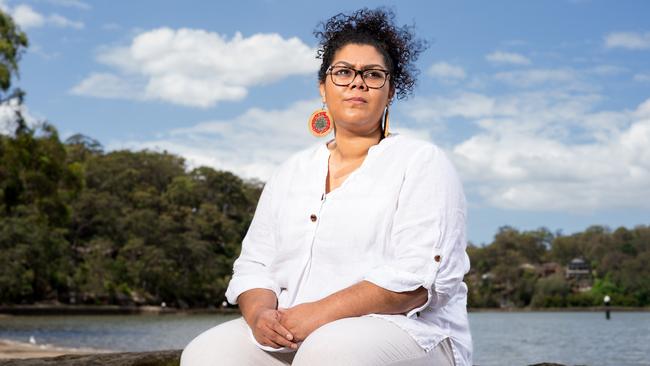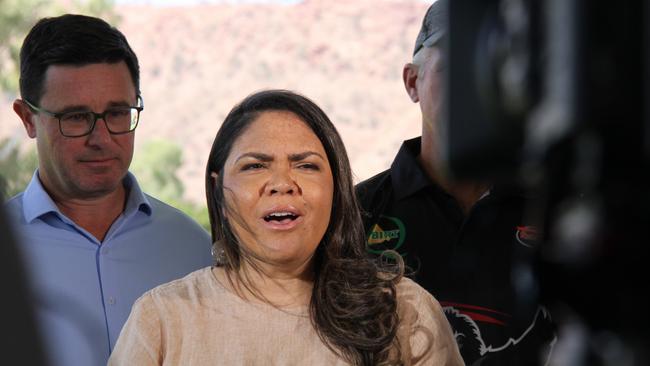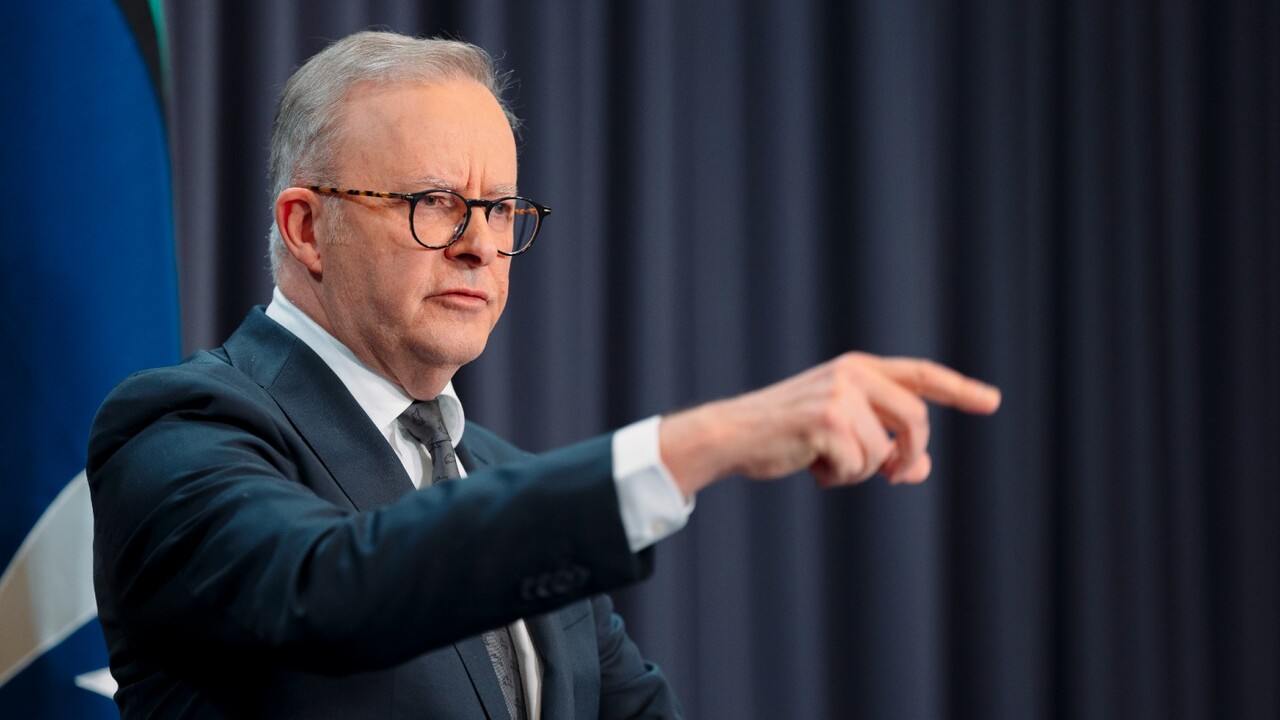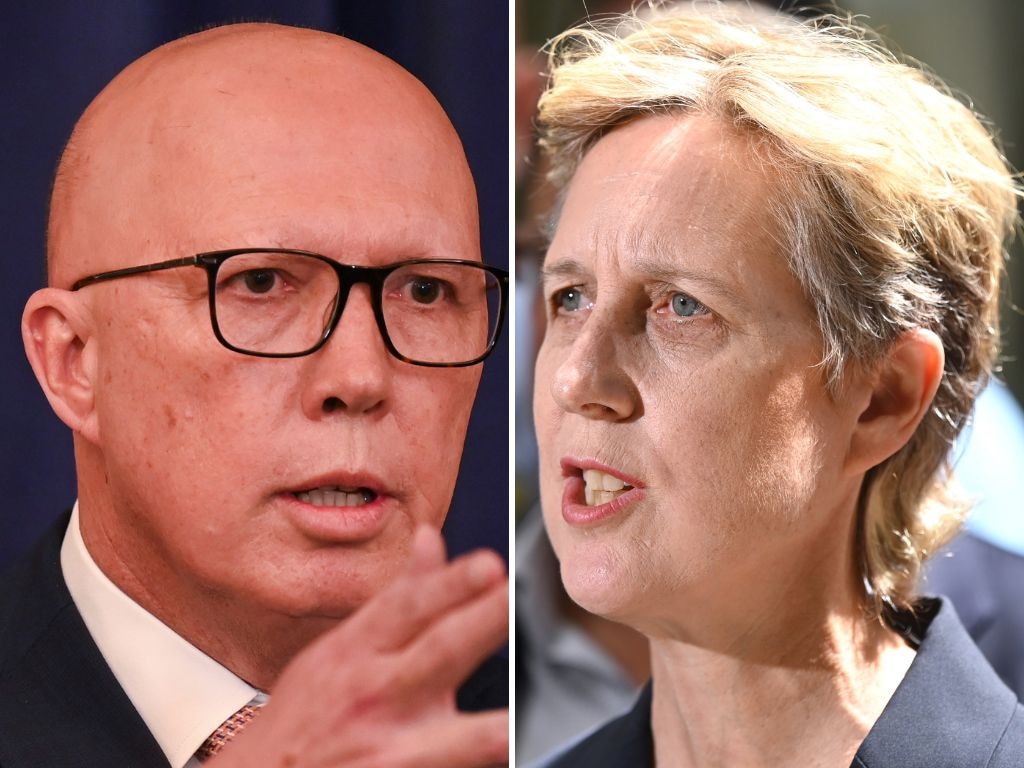Threat of voice ‘lies’ haunting campaign
Senior figures in the defeated push for an Indigenous voice to parliament have vowed to fight back against what they claim will be ‘lies’ in the federal election, signalling a bitter campaign on Aboriginal affairs in the weeks ahead.

Senior figures in the defeated push for an Indigenous voice to parliament have vowed to fight back against what they claim will be “lies” in the federal election, signalling a bitter campaign on Aboriginal affairs in the weeks ahead.
Uluru Youth co-chairs Bridget Cama and Allira Davis say lies about the Indigenous voice were repeated until people believed they were true and that strategy remains available to politicians and interest groups as Australians prepare to weigh up the Indigenous affairs policies of the major parties.
So far, Coalition Indigenous affairs spokeswoman Jacinta Nampijinpa Price has said a Dutton government will prioritise an audit of all government spending on Indigenous affairs. Labor has made jobs and economic development its post-voice Indigenous affairs policy.
“The research is clear. Lies were one of the key reasons ‘No’ was successful. The data does not lie,” Ms Cama told The Australian.
“The conditions that allowed the lies to dictate the public debate remain.
“Most Australians walked into the ballot box disinformed (on the day of the voice referendum in 2023).
“What we want to ensure is that the Australian public is aware of the deliberate deceiving tactics that will be at play this federal election.”

Ms Cama, a Wiradjuri and Pasifika Fijian woman from Lithgow, NSW, and Ms Davis, a Cobble Cobble woman from Logan, Queensland, described the strategies used on social media during the voice campaign as scary and unethical.
They discuss misinformation and disinformation in a podcast about the voice, singling out Senator Nampijinpa Price for a social media post they claim distracted people from the point of the voice.
In that post on October 12, 2023 – two days before the referendum – Senator Nampijinpa Price said: “I voted no to grievance. I voted no to division. I voted no to separatism. I voted no to enshrining welfare dependency. I voted no to name calling, bullying, manipulation and gaslighting. I voted no because I want to fix the system that hasn’t been working instead of adding to it. I want an Australia where we can respect one another and be treated equally. Only when we are together and we serve Australians on the basis of need, not race, will we see better outcomes.”
‘The research is clear. Lies were one of the key reasons “No” was successful. The data does not lie’
Ms Cama and Ms Davis say in their podcast, High Society, that the post created distraction from what the voice was about.
“(It was) disappointing because it took what was supposed to be a really important issue, where we could have respectful conversations, into like a really toxic environment,” Ms Cama said.
Staunch supporters of an Indigenous voice in the Constitution continue to work towards a form of constitutional recognition for Aboriginal and Torres Strait Islander people, though both sides of politics have now moved away from a rights-based approach to Indigenous policy. The “practical reconciliation” approach favoured by John Howard is common ground for both sides of politics even though their approaches vary.
Ms Cama and Ms Davis said that at the beginning of the voice campaign they saw incorrect information online and in the news as “an opportunity to get out there and actually educate people”.
“But then pretty soon we came to realise that it was actually deliberately being put out there,” Ms Davis said.
Both said they understood how Australians got confused during the voice campaign.
“And a big part of that was misinformation. But I think more notably the role of disinformation, and even post-referendum (is important),” Ms Cama said.
“We’re hearing people, you know, continually refer to it as just misinformation, which I think needs more analysis on it, because we actually know that it was disinformation, like it was deliberate and it was manipulative, and the purpose of it was to deceive the Australian people so that they voted no because they felt like they didn’t know what the proposal was about. And change is scary. And that campaign particularly drew on that fear and used it to their advantage.”
Ms Davis said: “And I just think it’s scary to see even like the election coming up, how visible it’s going to be throughout media.”

The Central Land Council, the Northern Territory’s biggest land council, on Friday laid out its priorities for the election. CLC chief executive Les Turner said the more than 20,000 Aboriginal people living remotely in Central Australia wanted the major parties to commit to further cost-of-living relief out bush by extending Labor’s capped price promise on 30 essential food items. This should be at all remote stores, and the remote area allowance should be increased as soon as possible, Mr Turner said.
“The allowance, just $9.10 per week for a single person, hasn’t increased for 25 years. A significant boost would compensate residents of very remote communities for the sky-high costs of food, furniture, clothing and transport. It would also make travel for medical appointments and cheaper groceries more affordable for the poorest Australians,” he said.
“The next government needs to extend funding for upgrades of drinking water infrastructure in our remote communities so our families can continue to survive and thrive on their land.
“Forty-six out of 73 of our remote communities are at high risk for water insecurity, in nine the risk is very high, and in five it’s extreme. In the absence of NT government investment in essential water infrastructure, this crisis needs to be addressed through the National Water Grid.
“We’ll work with whoever forms the next federal government and we’ll ask them to hold the Territory government to account for delivering effective cyclical housing maintenance and repairs of its severely degraded housing stock under the Remote Housing Partnership Agreement.
“They must stop the construction of unliveable hot boxes and design new houses that are fit for a steadily heating climate.
“Three thousand new remote community jobs across Australia are welcome but will not make much of an impact on the high jobseeker rate in Territory communities. We’re calling on all parties to commit to lifting the number of real jobs and to get serious about the reform of the community development program.”







To join the conversation, please log in. Don't have an account? Register
Join the conversation, you are commenting as Logout